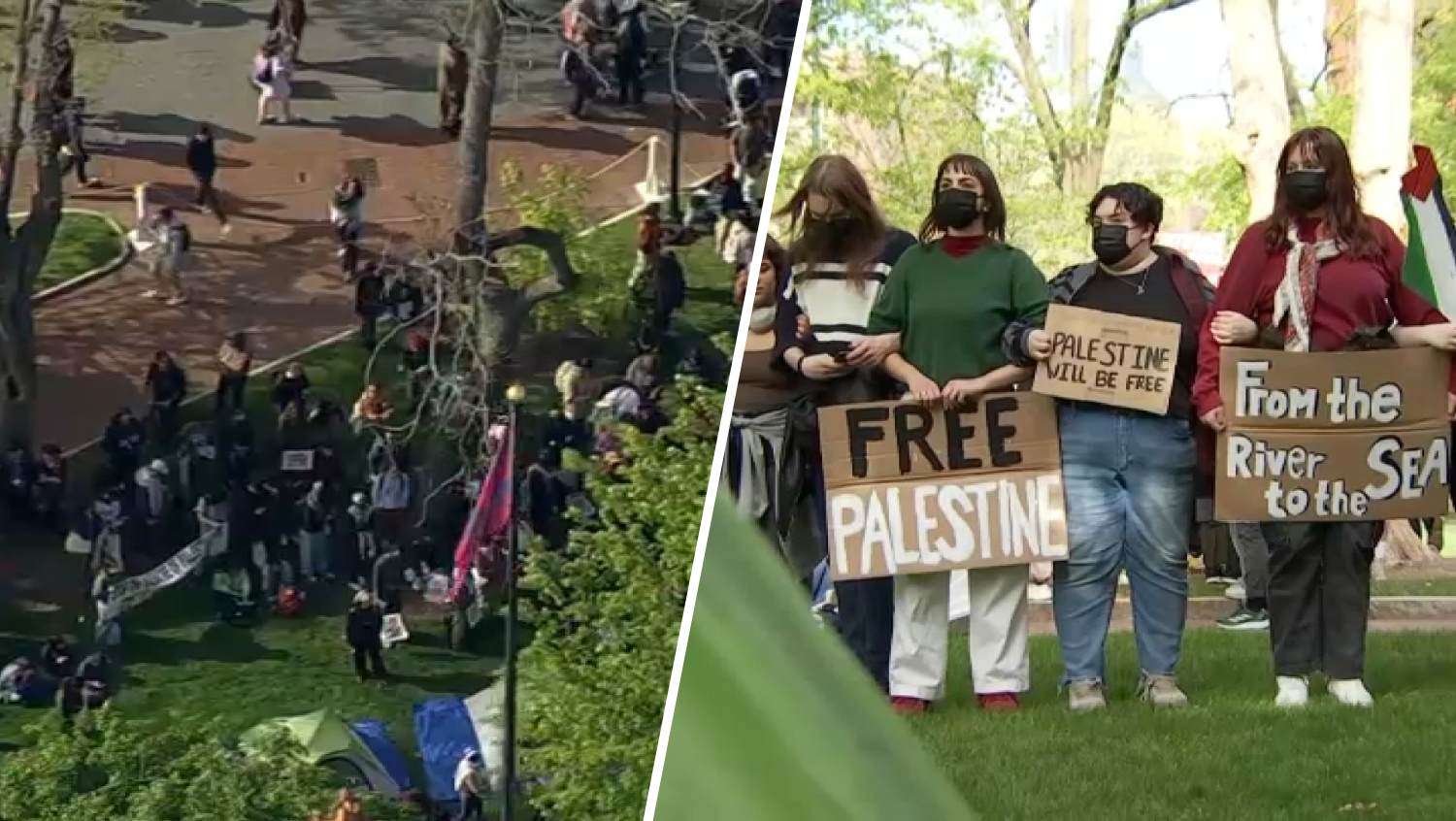Keith Forsyth is, by most accounts, a regular guy in Manayunk. But more than four decades ago, he looked less than respectable while, with a car-jack lever in hand, breaking into an FBI office in Media, Pa.
On that 1971 night, he heard noises from the residential apartments above. There was a superintendent downstairs as well. A guard in the courthouse across the street looked out at the building. Still, he kept at it.
"Come hell or high water," went Forsyth's thinking, "I was going to get through that door."
The mission, accepted
He and a group of conspirators wanted evidence that the FBI was infiltrating and intimidating groups of citizens in an effort to subvert political opposition to official U.S. policies. He needed proof.
"I was a 20-year-old from Ohio," he recounted in recent interviews with NewsWorks, "and I knew it was going on. And the Chief Justice of the Supreme Court didn't know?"
So, he decided to join a group put together by Haverford College professor Bill Davidon to try and force action.
Local
Breaking news and the stories that matter to your neighborhood.
"It was as successful as we could have dreamed," he said publicly, spurred on by the government's inability to prosecute in connection with the case. "It got to the press, who did their duty."
From there, the story grew.
The Counter Intelligence Program, known by its FBI code name COINTELPRO, was exposed and ended. FBI excess was reigned in.
In light of recent NSA leaks, Forsyth's history reminds people that there is a history to government spying on Americans.
The pressure point
Forsyth had been practicing for the moment for months. His team had cased the joint. He knew the locks. He built tools to pick them.
He even rehearsed his task on a replica door in Germantown until he got his time down to 30 seconds.
But when the calendar struck March 8, 1971, things did not go as planned.
At this point in the story, Forsyth — a father, husband, engineer, musician and former burglar in the anti-war movement — wants precision in the historical record, particularly considering the recent media frenzy around the episode.
Many have asserted that Forsyth was surprised by the appearance of a second lock on the door he meant to get through. Hence, his huffing and puffing with the lever as he eased the door open millimeter by painstaking millimeter.
Not exactly so.
"There were always two locks on the front door," he said.
What was unexpected, however, was that one had a cylinder tumbler similar to a kryptonite bike lock. He thought they had been standard pin tumbler locks.
"It can be picked, but you need a special tool and practice," he said.
But there was no time for that.
Specificity matters
Whether it was a new lock entirely or a replaced lock may be a small difference, but Forsyth is all about precision.
He designed lasers as an electrical engineer and had his own company, Forsyth Electro-Optics, in Manayunk — where he settled for his post-political career.
Even on that night at the FBI office, he was more focused on the technical challenge than worrying about getting caught.
"I didn't like the feeling, but what are you going to do?" he said. "I couldn't afford to panic."
Sweating on the floor as he broke in he recalled being "more exhausted by the mental effort than the physical. Precision was needed."
Despite the lock concerns, the group, which called itself the Citizens' Commission to Investigate the FBI, decided that the operation should continue.
Forsyth had to do some quick, effective problem solving.
While the tumbler lock on door number two was no problem, fellow conspirator and then-Germantown resident Bonnie Raines had surveyed the inside of the offices. She told Forsyth that a heavy cabinet sat directly on the other side.
A bit of manuevering later, he broke through, albeit behind schedule. He pushed from the shoulder, but felt that the furniture was about to tip. A loud crash would render the operation a likely failure.
Forsyth decided to try and move the door open, pushing the cabinet slowly across the carpeted floor from its bottom. He went to his car, got the lever from a car jack and went methodologically to work until he could slip through the door.
Checking inside for an alarm, he found none. So, he taped the lock, shut the door and headed out. Others then came to pull out the files.
His main responsibilities were over and soon the world would learn that the FBI was involved in spying, intimidation, and harassment — often without any suspicion of crime — of people marked as politically undesirable by the FBI.
"He deserves a lot of the credit," said Raines.
Seeds of dissension grow
Keith Forsyth was not born to family of dissenters. He was raised in a conservative household in smalltown Ohio and shared his parents views when he left for The College of Wooster.
It was there that he came across a small book published by Quakers challenging the legitimacy of the war in Vietnam. At first unwilling to accept such views, the earnest freshman read everything about U.S. foreign policy and the war that he could find.
His opposition to his own government developing for the first time, he was still not ready to join the anti-war effort.
In a last effort to be persuaded to continue his support for American policy, he called the State Department. He asked for solid academic research that would keep him on their side. They suggested a title, but really had little to offer. He found the book they suggested filled with unsubstantiated claims and lacking rigor.
"There was no good academic work that could support the war. There couldn't be," he said.
He quit school and thumbed his way to Philadelphia where there were Quakers and many other anti-war activists. Here, he fell in with the Catholic Left, although not a Catholic himself and threw himself into the movement with urgency.
"It was not a philosophical debate," he said. "It was a life-and-death debate."
The road to Media
He learned locksmithing and participated in draft-board burglaries designed to disrupt the conscription process.
Because of these skills, Davidon called him in late 1970 and asked if he wanted to "go to a party."
Forsyth knew what he meant.
"Bill's criteria was to gather people who had already shown a serious commitment to activism, who were not just working on the weekends," said Raines. "He wanted people who were smart and stable."
Forsyth figures he was also invited because they simply needed somebody who was handy. The leaders of the group were older and more academically inclined. Forsyth was good with his hands.
There was a culture divide in the group as well.
"Bill didn't smoke weed or listen to Jimi Hendrix," said Forsyth, noting that despite differences, the group "got along great. It was like a family atmosphere."
Indeed, they shared meals and played music on evenings that they planned the break-in. The conspirators read bedtime stories to the Raines' children.
Agents, informers and innocents
WIN magazine, a radical pacifist publication affiliated with the War Resisters League, was the first to publish the files stolen from Media. They published them verbatim with explanatory remarks — a 1970s version of WikiLeaks.
"The public had a right to see those documents raw," he said, "and historians had a right to see them."
In that issue, the editors explained how they handled the documents before publication.
They decided the names in the files referred to "agents, informers and 'the innocent.'" They redacted the names of the innocents (i.e., those whose "activities and attitudes" were being reported by the FBI) to protect them, but not the others.
Forsyth believes that was a "fair categorization" even if one had to be careful about blanket appraisals.
"At that time you had to take a stand," he said. "People who took a stand by informing for the FBI and if exposed suffered repercussions are not going to get sympathy from me. People were being killed in the streets for their political opinions."
Forsyth cited the murder of Fred Hampton of the Black Panthers, and the students killed at Jackson State and Kent State universities to support that stance.
Life after Media
While Edward Snowden has noted that in his view NSA surveillance is "frightening and chilling," Forsyth contended the government is "less vicious" now.
That, in Forsyth's view, was the achievement of his work in the break-in. He believes that he "had a little piece of that and a little piece is better than no piece."
The government became more restrained, he maintained.
With its blackmailing and intimidation of people even as prominent and peaceful as Martin Luther King, Jr., COINTELPRO stopped.
Still, Forsyth undertook one more major political action before his retirement: He and others broke in to a draft board office in Camden, N.J., got caught red handed, and were arrested.
They never had a chance. The FBI had infiltrated their group. But, the feds had also facilitated their work through a mole.
After a celebrated case that put the whole Vietnam War on public trial, the Camden-28 were acquitted. The FBI itself was complicit, so they got off.
Breaking up
The Media burglars went their separate ways with a pact to stay out of touch and never reveal their secret. After an exhaustive hunt, the FBI apparently gave up its pursuit.
Forysth settled down, got a degree from Drexel University and became an electrical engineer.
He is married to Susan Grossinger, a social worker. They met at a bar called Tops on 15th Street.
Before they married in 1979, he broke the conspirators' pact and told her about the time he ripped off the FBI, but it failed to register. She does not even remember the moment.
"He was involved a lot in politics and did so many things," she said. "It didn't seem different or unusual. It was just something he did."
They moved to Manayunk in 1980 when "half of Main Street was abandoned," said Forsyth.
They raised two kids in the house where they still live near The Wall, and still love the neighborhood for the same reasons as many others: Convenient location, low crime and charming look.
"I couldn't live in Philadelphia without the Wissahickon Creek," Forsyth said.
Their kids went to public school. As parents, they were active in the area with Forsyth coaching youth soccer.
Nobody ever suspected Forsyth's past. Grossinger never had to call a locksmith.
Life was quiet, and still is — outside the journalists who call and visit everyday now.
None of his neighbors have said anything to Forsyth despite his name and picture being in the press, and that is fine by him.
He was never in it for celebrity. He was "100 percent satisfied" with his name being kept secret all these years.
In the meantime, Forsyth continues to work as an engineer and plays guitar in the Jazz Lab Band, which practices at his house on Tuesday nights.
In the summers, when the windows are open, sometimes 'Yunkers gather around outside to listen — until now unaware that the guy on the six-string ripped off the FBI and helped change America.



